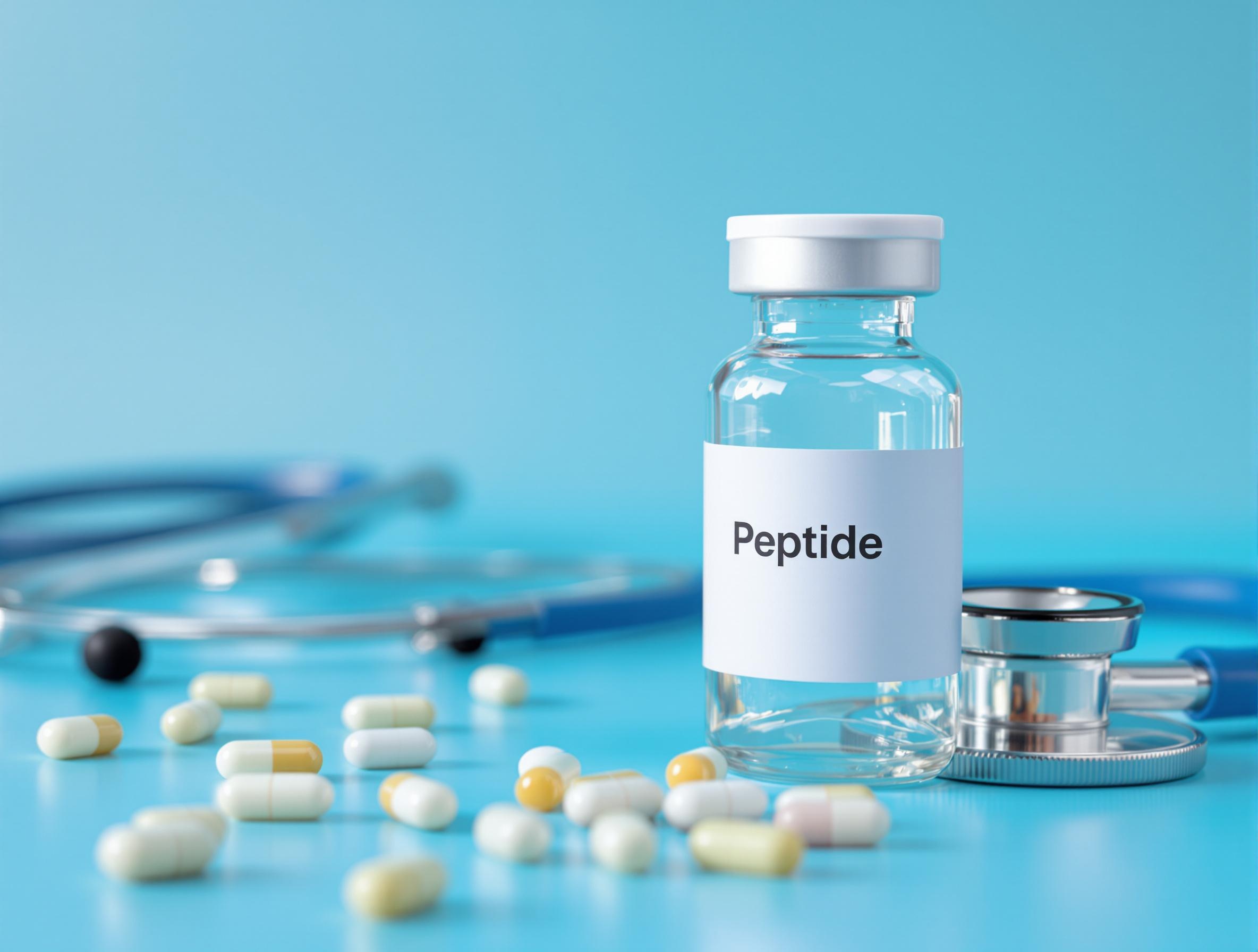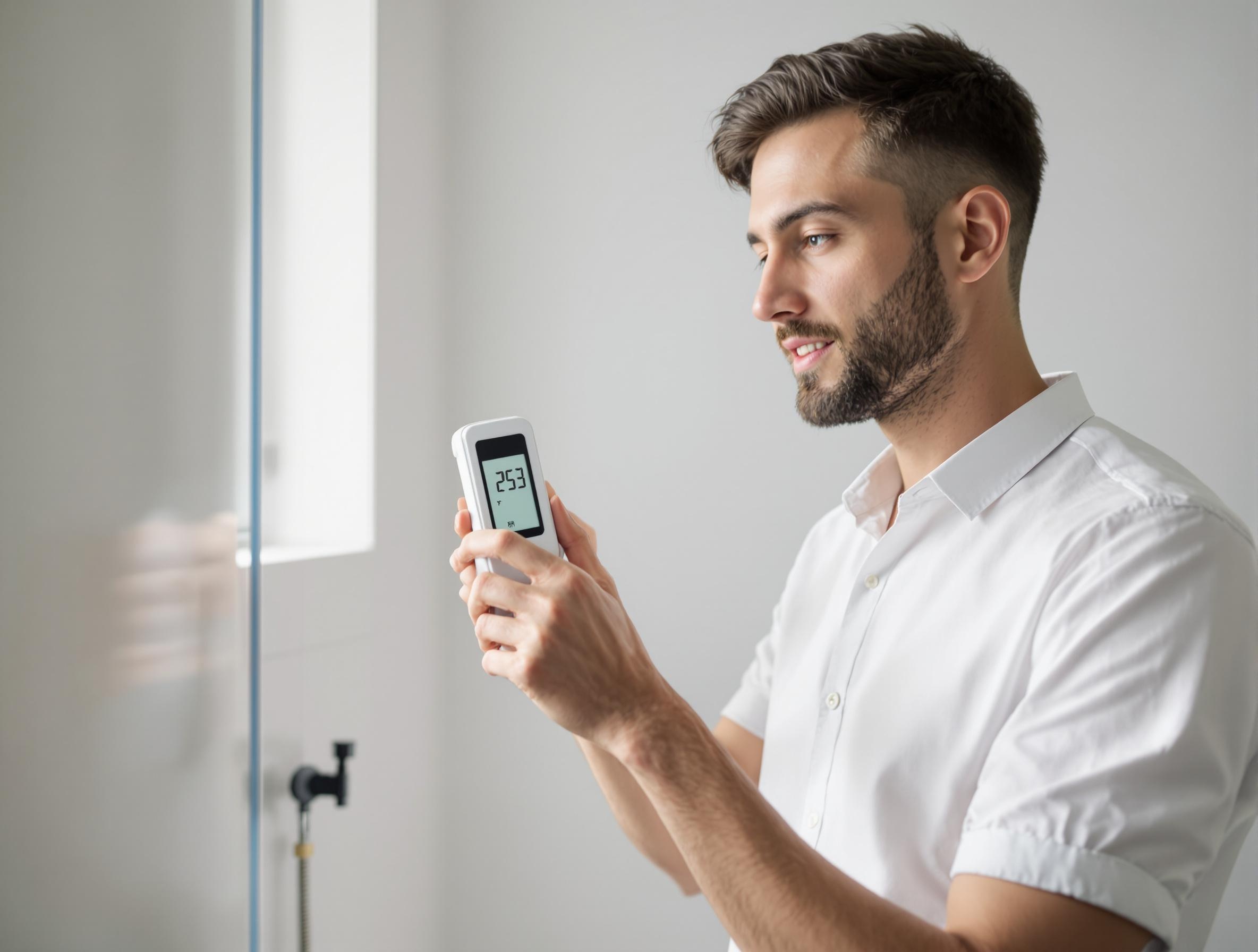VIP Peptide Therapy: The Multi-System Regulator You Should Know About

Key Points:
- VIP is a neuropeptide naturally found in the brain, gut, and lungs with powerful systemic effects.
- VIP is especially promising for people dealing with autoimmune diseases, chronic inflammation, cognitive decline, and gut disorders.
- Mobile Care Health offers VIP as part of personalized regenerative treatment plans sourced from certified compounding pharmacies.
As functional medicine and regenerative therapy expand, certain naturally occurring compounds are taking center stage for their wide-ranging health benefits. One such compound is vasoactive intestinal polypeptide (VIP)—a powerful neuropeptide with roles in the nervous, immune, and digestive systems.
At Mobile Care Health, we’ve seen growing interest in VIP therapy among patients dealing with chronic inflammation, autoimmune conditions, and neurological issues. Whether you’re hearing about VIP for the first time or you’re exploring it as a potential treatment, this guide will help you understand what it is, how it works, and why it’s becoming a focus in integrative healthcare.
What is Vasoactive Intestinal Polypeptide (VIP)?
Vasoactive intestinal polypeptide is a small protein, or neuropeptide, first discovered in the 1970s. It is produced primarily in the gut, pancreas, and brain, and acts as a signaling molecule that helps various systems in the body communicate and regulate themselves.
VIP is known for its ability to relax smooth muscle tissue, dilate blood vessels, stimulate digestive secretions, and modulate immune responses. As a neurotransmitter and hormone, it plays a role in everything from lung function to mood regulation.
Why VIP matters
- Neurotransmitter regulation: It helps transmit signals between nerve cells in the central and peripheral nervous systems.
- Gut function: It stimulates the secretion of water and electrolytes in the intestines and aids in motility.
- Immune support: VIP controls inflammation, making it relevant in autoimmune and chronic inflammatory conditions.
Its broad systemic effects make VIP an exciting target for research and therapeutic applications.
How VIP functions in the body
When discussing VIP peptide function, we discuss a wide array of biological processes. VIP is one of the most multifunctional peptides in the body.
Key mechanisms of action:
- Vasodilation: VIP causes the relaxation of blood vessels, improving circulation and reducing blood pressure.
- Smooth muscle relaxation: VIP helps relax muscles in the lungs and gastrointestinal tract, promoting easier breathing and better digestion.
- Immune modulation: VIP reduces pro-inflammatory cytokines and supports immune balance, which is especially important in conditions like asthma, sarcoidosis, or IBD.
- Neurotransmitter release: It influences the release of GABA, acetylcholine, and other neurotransmitters, contributing to emotional regulation and cognitive function.
- Circadian rhythm regulation: VIP is involved in signaling within the suprachiasmatic nucleus (SCN), the part of the brain that controls circadian rhythms. This means it helps regulate sleep-wake cycles.
These diverse roles help explain why VIP is being studied for conditions ranging from chronic fatigue to multiple sclerosis and cognitive decline.

Health benefits of VIP
Interest in VIP therapy is growing because of its far-reaching impact on human health. While more research is still needed, the observed VIP peptide benefits are compelling—especially for those with chronic or complex conditions.
1. Lung protection and respiratory health
VIP is highly expressed in the lungs and has been studied for its bronchodilatory effects, which can support people with asthma, COPD, or pulmonary hypertension. It helps reduce inflammation and improves airflow.
2. Neurological and cognitive support
Thanks to its role in neurotransmitter balance and brain function, VIP may be useful in treating neurodegenerative conditions like Alzheimer’s disease or Parkinson’s. It’s also being explored for its potential to reduce symptoms of anxiety and depression by modulating mood-regulating chemicals.
3. GI tract and gut healing
VIP regulates secretion and motility in the intestines and plays a role in maintaining gut barrier integrity. This makes it relevant for people dealing with IBS, SIBO, Crohn’s disease, or ulcerative colitis.
4. Autoimmune disease management
Studies have shown that VIP can suppress immune overactivity and promote immune tolerance, potentially benefiting patients with sarcoidosis, rheumatoid arthritis, or multiple sclerosis.
At Mobile Care Health, we’ve seen patients benefit from VIP therapy as part of a broader treatment plan for complex, systemic conditions—especially those involving inflammation or immune dysregulation.
Is VIP peptide therapy safe?
As with any therapeutic intervention, VIP peptide safety is a key concern. While VIP is naturally produced in the body and appears to have a favorable safety profile, clinical use of synthesized VIP should always be approached cautiously and under medical supervision.
Known or reported side effects:
- Mild headaches
- Dizziness
- Temporary flushing
- Rare allergic reactions
Because VIP affects multiple systems—including cardiovascular and neurological pathways—it is not something to self-administer or purchase from unregulated sources. Dosing needs to be personalized and monitored.
Quality and regulation
Like many peptides, VIP is not FDA-approved for general use, meaning quality control varies significantly across vendors. At Mobile Care Health, we only source VIP and other peptides from certified compounding pharmacies to ensure purity, efficacy, and safety.
Peptide therapy is powerful—and with that power comes the responsibility of using it wisely.
How does VIP therapy work?
VIP is typically delivered via nasal spray, which allows it to bypass digestion and reach the brain quickly through the olfactory system. This route is ideal for targeting neurological or respiratory conditions.
Other forms may include subcutaneous injection, especially if systemic immune or gastrointestinal effects are desired.
While there’s no “standard dose” for VIP therapy, treatment is often initiated in low doses and gradually adjusted based on the patient’s response. Depending on the condition being treated and the body’s feedback, the duration of treatment may vary from several weeks to several months.
As always, treatment should be guided by a licensed healthcare provider familiar with peptides and their systemic effects.
Should you consider VIP therapy?
If you’re dealing with chronic inflammation, neurological concerns, autoimmune conditions, or unexplained fatigue, vasoactive intestinal polypeptide may offer a new avenue for support. Its ability to regulate multiple immune, nervous, respiratory, and digestive systems makes it uniquely versatile.
But, like all advanced therapies, it should be approached with caution and care.
VIP therapy is still an emerging field. While preliminary results and clinical use cases are promising, larger studies are needed to understand its therapeutic range and long-term safety fully. We know this: VIP holds immense potential when used responsibly and in a personalized medical context.
At Mobile Care Health, we offer VIP spray as part of our functional and regenerative medicine programs. We help patients explore cutting-edge treatments with expert guidance. If you think VIP could be part of your wellness journey, we’re here to help you explore it safely and effectively.
Articles on this site are for general education and do not substitute for professional medical advice. Consult our providers for personalized recommendations





